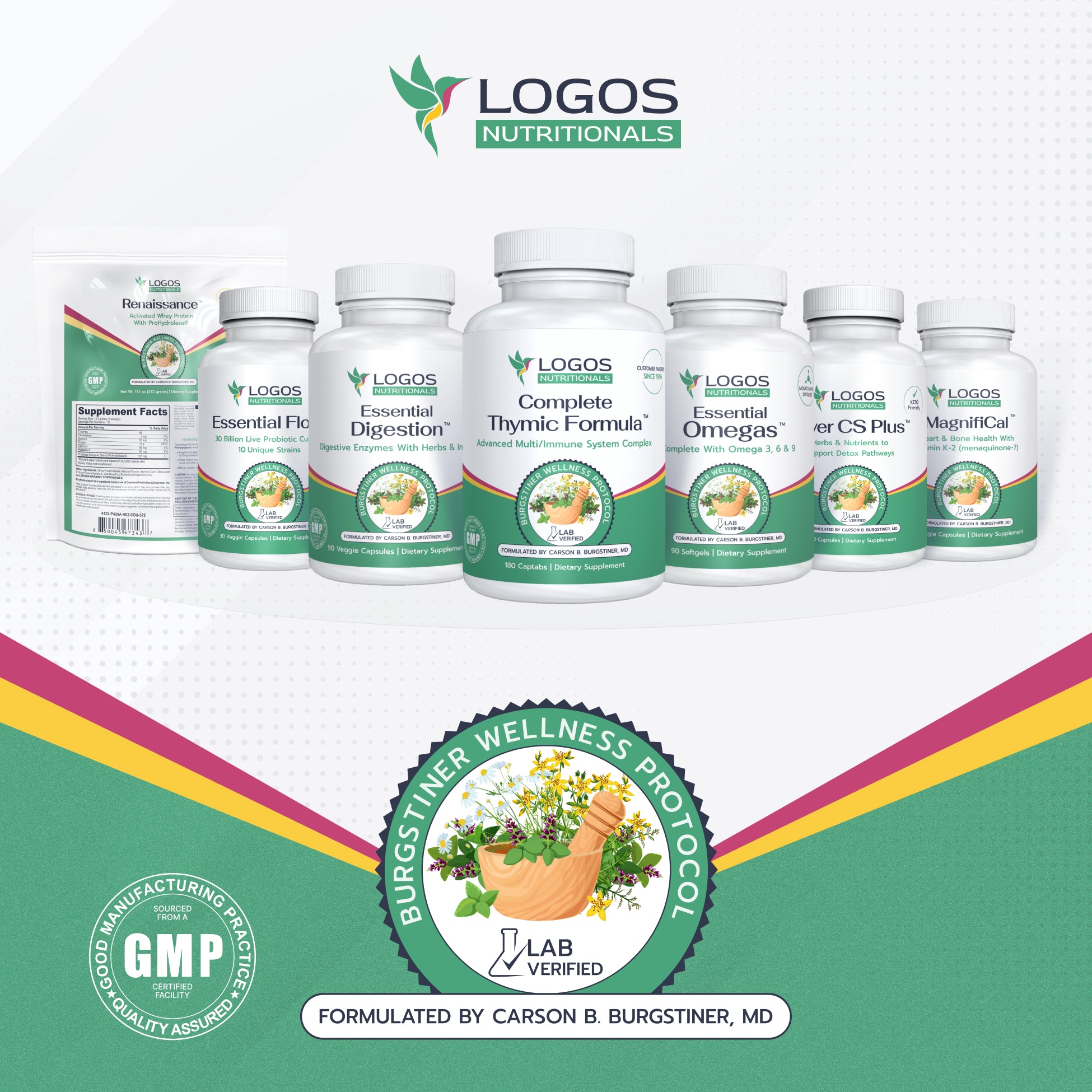Hair loss can have a particularly profound impact on women, as it often leads to a decline in self-esteem. The resulting self-image concerns arising from thinning hair can significantly erode their confidence, especially in cases of sudden hair loss. This can create a sense of losing their physical attractiveness, leading to heightened self-consciousness about their diminishing hair volume.

While men may experience receding hairlines, bald patches and partial or complete baldness, women typically encounter a more diffuse issue characterized by overall thinning and fine hair distributed across the scalp.
What Can You Do
In this article, you'll learn nine proven ways to prevent hair loss in women and make your hair thicker again. You can do something about it and don't have to just let your hair do its own thing – you can help it grow better.

1. Nutrition is Vital.
Good nutrition plays a crucial role in preventing hair loss in women and general female pattern hair loss by providing the essential nutrients that support overall hair health, growth, and maintenance. Hair is composed primarily of a protein called keratin, and various vitamins, minerals, and other nutrients are necessary for the growth and maintenance of strong, healthy hair follicles. Here's how good nutrition can help prevent thinning or missing hair:
Protein Intake: Adequate protein consumption is essential for hair growth, as hair is primarily made of protein. Including sources of lean protein such as poultry, fish, eggs, beans, and nuts in your diet provides the building blocks necessary for strong and healthy hair.
Certain vitamins and minerals play key roles in hair health:
Vitamin A: Helps produce sebum, which moisturizes the scalp. Sources include sweet potatoes, carrots, spinach, and kale.
Vitamin E: An antioxidant that enhances blood circulation and promotes a healthy scalp. Found in nuts, seeds, and leafy greens.
Vitamin C: Supports collagen production, which is important for hair structure. Citrus fruits, strawberries, and bell peppers are good sources.
Biotin (Vitamin B7): Biotin is often associated with hair and nail health. It contributes to the production of keratin and helps prevent hair breakage. Foods like eggs, nuts, seeds, and sweet potatoes contain biotin.
Omega-3 Fatty Acids: Found in fatty fish (like salmon and mackerel), flaxseeds, and walnuts, omega-3 fatty acids support scalp health and help reduce inflammation that can affect hair follicles.
Iron: Iron is crucial for proper blood circulation, which ensures that hair follicles receive the necessary nutrients and oxygen for growth. Iron deficiency (anemia) can lead to hair shedding and thinning. Foods rich in iron include red meat, poultry, fish, lentils, beans, and dark leafy greens.
Zinc: Zinc supports hair growth and repair by helping to maintain the oil glands around hair follicles. Good sources of zinc include red meat, poultry, nuts, and whole grains.
Selenium: Selenium is an antioxidant that supports a healthy scalp. Brazil nuts, fish, and whole grains are sources of selenium.
Iodine: Iodine is necessary for proper thyroid function. Thyroid disease or insufficiency is a common underlying problem that can lead to hair loss. In addition to iodine, supplementation with thyroid glandular extract can be helpful under medical supervision.
Silica: Silica contributes to collagen production, which is important for hair strength and elasticity. Silica-rich foods include beans, cucumbers, and oats.

2. Active Lifestyle
This is so obvious it shouldn’t be stated, and yet, millions of people are guilty of neglecting exercise. Aim for 30-45 minutes of exercise daily.
The increased activity will improve your blood circulation, reduce your stress levels, and even balance your hormones. Increased blood flow to the scalp will flush out toxins that hinder hair growth while providing your hair follicles with nutrient-rich blood.
Most women don't realize the benefits of exercise – and it's connection to your hair quality.
 3. Avoid Smoking and Alcohol
3. Avoid Smoking and Alcohol
Smoking can seriously impact hair loss because it affects the flow of blood and oxygen to your hair follicles. When you smoke, the harmful chemicals in cigarettes can narrow the blood vessels that supply your scalp, making it harder for important nutrients and oxygen to reach your hair roots. This can weaken your hair growth and make your hair more fragile and prone to falling out. Moreover, smoking releases harmful molecules called free radicals that can damage your hair follicles and disrupt their normal growth cycle, leading to thinner and weaker hair over time. Smoking also triggers inflammation in your body, and this inflammation can make female pattern hair loss worse, especially if you're already prone to conditions like female pattern baldness. By quitting smoking, you can take a big step toward keeping your hair healthier and reducing the risk of significant female pattern hair loss.
Excessive alcohol consumption can lead to hair loss due to its multifaceted impact on physiological processes. Firstly, alcohol interferes with the absorption of vital nutrients required for optimal hair growth, potentially weakening hair follicles and impeding their ability to generate robust strands. Secondly, alcohol disrupts the delicate balance of hormones in the body, particularly hormones like estrogen and testosterone, both of which influence hair health. Thirdly, the consumption of alcohol places a burden on the liver, a central organ responsible for hormone processing and detoxification, which can further disrupt the hormonal milieu that affects hair growth. Thus, the prudent moderation of alcohol intake and prioritizing overall well-being can serve as a preventative measure against potential hair loss concerns.
4. Steer Clear of Tight Hairstyles
Tight hairstyles can have a significant impact on hair loss in women and thinning hair. While they may look stylish and convenient, constant tension on the hair and scalp from tight braids, ponytails, buns, or extensions can lead to a condition known as traction alopecia. This type of noticeable hair loss is caused by the repeated pulling force applied to the hair follicles, leading to their weakening and eventual damage. Here's why tight hairstyles are problematic for hair loss:
Root Cause of Traction Alopecia: Traction alopecia occurs when the hair shaft and the follicle are subjected to excessive tension. This constant pulling puts stress on the hair root, affecting blood circulation and restricting the delivery of nutrients and oxygen to the follicles. Over time, this weakened state can lead to hair thinning and, if left untreated, even permanent hair loss.
Hair Follicle Damage: The stress caused by tight hairstyles can damage the hair follicle and lead to inflammation. This can disrupt the hair growth cycle, leading to shedding and the production of finer, weaker hair.
Scarring: Prolonged tension can lead to scarring around the hair follicles, which can result in permanent hair loss in the affected areas. Scar tissue can replace healthy follicles, preventing new hair growth.
Increased Breakage: Constant tension weakens the hair shaft, making it more susceptible to breakage. The hair may become fragile and snap more easily, contributing to overall hair thinning.
Receding Hairline: Traction alopecia often affects the hairline, causing it to recede. This can alter the natural shape of the hairline and lead to an uneven appearance.
Preventing New Growth: The persistent tension can inhibit the growth of new, healthy hair. As the hair follicles become damaged, they may no longer produce new hair strands, leading to patches of hair loss.

5. Watch Your Hair Care
Incorporating these tips into your routine can greatly impact the overall health and appearance of your hair. Let's dive into why these tips are so important:
Regular Washing: Washing your hair with a gentle, sulfate-free shampoo helps remove dirt, excess oil, and product buildup.
Conditioning: Using a suitable conditioner after shampooing helps to restore moisture, improve manageability, and prevent tangling. It also provides a protective layer against environmental stressors.
Regular Trims: Trimming split ends every few months prevents them from traveling up the hair shaft, maintaining healthy hair length and minimizing breakage.
Gentle Towel Drying: Vigorously rubbing wet hair with a towel can cause friction and breakage. Gently patting or using a microfiber towel helps preserve hair structure.
Avoiding Over-Manipulation: Excessive brushing, combing, or styling can stress hair and lead to damage. Treat your hair gently, especially when it's wet.
Quality Hair Tools: Using good-quality brushes, combs, and accessories reduces the risk of hair breakage and damage.
Choosing the Right Products: Understand your hair type and choose products tailored to your needs. This ensures you're providing the right care and nourishment.

6. Stay hydrated
Drinking sufficient water is important for overall health and well-being, and it can indirectly contribute to maintaining healthy hair. Here's how consuming sufficient water can potentially help prevent female pattern hair loss:
Hydration and Blood Flow: Proper hydration helps maintain adequate blood circulation throughout the body, including the scalp. Good blood flow ensures that hair follicles receive essential nutrients and oxygen, which are crucial for healthy hair. Dehydration can potentially lead to reduced blood flow to the scalp, affecting hair follicle health.
Nutrient Delivery: Drinking enough water supports the transportation of nutrients to hair follicles. Nutrients like vitamins, minerals, and amino acids are necessary for hair growth and overall hair health. Hydration can aid in the absorption and distribution of these nutrients to the hair follicles.
Hair Shaft Moisture: Well-hydrated hair shafts are less prone to breakage and damage. Adequate water intake can help maintain the moisture balance of the hair, preventing dryness and brittleness that can lead to hair breakage and thinning.
Detoxification: Water is essential for flushing out toxins from the body. Detoxification can help promote a healthy environment for hair growth by reducing oxidative stress and potential inflammation, which are factors that can contribute to hair loss.
Scalp Health: A well-hydrated scalp is less likely to become dry and flaky, which can contribute to conditions like dandruff or scalp inflammation. These conditions can potentially impact hair health and contribute to hair loss.
7. Avoid Chlorinated Pools
If you swim often, chlorine and other chemicals in the pool can wreak havoc on your hair. In fact, even if you swim in the sea, the salt water can have a drying effect on your hair and leave it tangled and frizzy.
Here's how chlorinated pools may encourage hair loss:
Dryness and Brittle Hair: Chlorine is a powerful disinfectant that can strip away the natural oils that protect and moisturize your hair. This can lead to dry, brittle hair that is more susceptible to breakage and splitting. Weakened hair strands are more likely to break off from the scalp, which can contribute to the appearance of thinning hair.
Weakening of Hair Structure: Prolonged exposure to chlorinated water can weaken the protein structure of the hair shaft, making it more fragile and susceptible to damage. Weakened hair is more likely to break and may lead you to lose hair.
Scalp Irritation: Chlorine and other pool chemicals can irritate the sensitive skin of the scalp. This irritation can disrupt the hair growth cycle and potentially contribute to hair shedding.
8. Avoid Direct Exposure To Sunlight
Direct sunlight exposure doesn't directly cause hair loss, but it can lead to problems like sunburned scalp, dry and brittle hair, or color fading. This affects hair health indirectly by disrupting growth, moisture, and color. To protect your hair, wear a hat, use UV protection products, and limit sun exposure. Over time, sun-generated free radicals can damage hair follicles. While some sun exposure is beneficial, excessive exposure can contribute to hair problems.
9. Use Supplements
Supplements can help prevent hair loss in women by providing essential nutrients that support hair health, growth, and scalp condition without the need for medical treatments. They fill in nutritional gaps and address deficiencies that could contribute to hair problems. Biotin, vitamins (like D, E, and B-complex), minerals (such as iron and zinc), and antioxidants are common supplement ingredients that promote stronger hair follicles, reduce inflammation, and enhance blood circulation to the scalp. Before starting supplements, it's best to consult a healthcare professional to ensure proper dosages and address individual needs. Remember, supplements work best when combined with a balanced diet and overall healthy lifestyle.
 Introducing Fabulous Hair
Introducing Fabulous Hair
Fabulous Hair is a special mix of nutrients like biotin, silica, choline, vitamins A, C, and E. Its goal is to lessen hair problems like loss, thinning, and dullness. It also makes healthy hair look better and stops future issues, and is the ideal way to treat hair loss.
Think of Fabulous Hair as a daily multivitamin for your hair. Hair can get worse due to hormones, stress, and illnesses. It can lead to problems like hair loss, thinning, dryness, and slow growth.
Our unique mix of vitamins, minerals, and herbs is designed to address these problems and make your hair vibrant and healthy.














